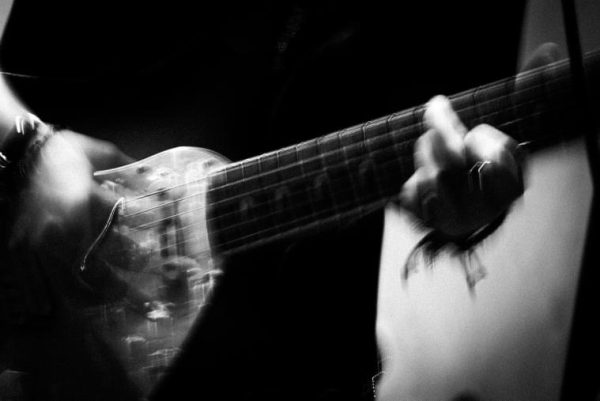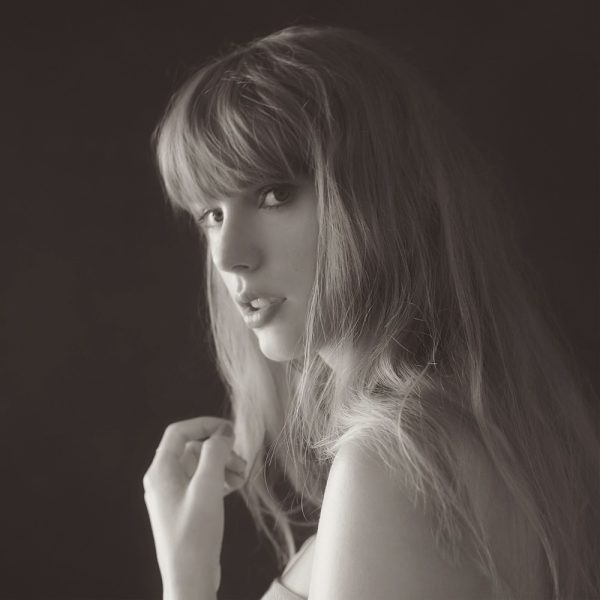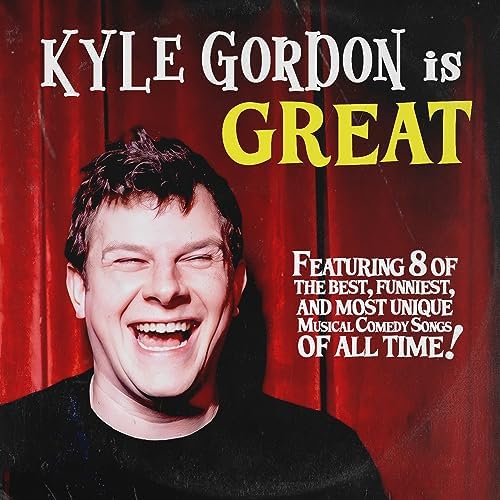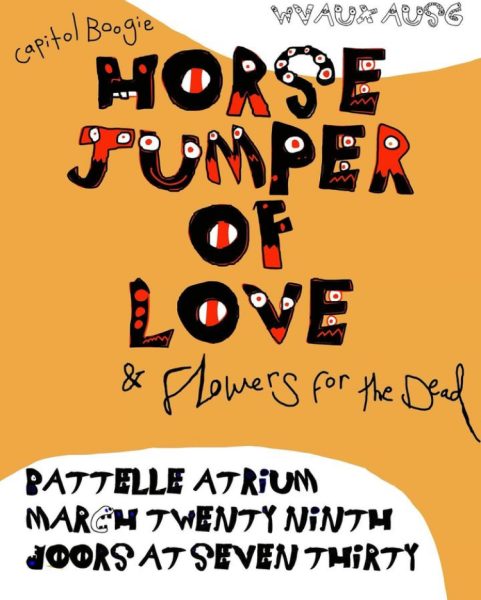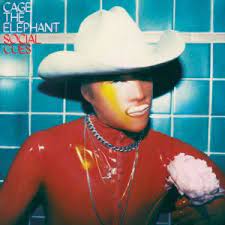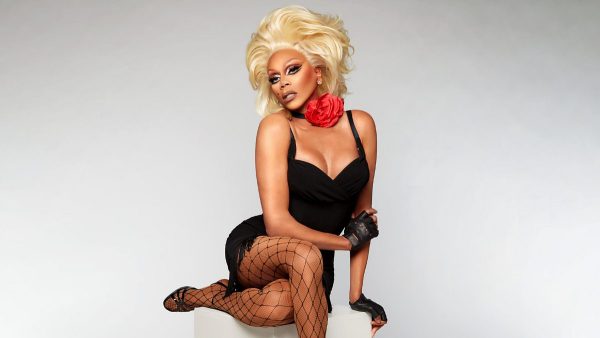Texture in Music 4: Vocal Texture
February 18, 2022
Out of all the great and interesting sounds in this world, there are none that we are more predisposed to like than the human voice. It’s true the predisposition does not necessarily mean that something is good, but in the case of vocals, I certainly find that it is the case. After all, human vocal chords are a sonic marvel; the sheer quantity of texture that one human voice (let alone the voices of all the different people on this planet) can create is truly staggering. Add on to this the many ways digital processing has allowed us to manipulate the human voice, liberating it from any limitations, and we are left with one of the most spectacularly natural, yet human, instruments to be heard. As such, any exploration of musical texture worth its salt should include a heavy focus on the human voice in all its glory. And beyond pure duty to interesting sounds, the human voice is extremely captivating to me personally in its depth and range, making it an electrifying topic for me to explore through writing.
(If you’d like to stay up to date with my explorations of musical texture, be sure to check out the running playlist below).
Breathing: Collider – Jon Hopkins and Breath – Go Hiyama
A simple breath can convey so much meaning: pain, frustration, pleasure, tension, and release. After all, breathing is one of the most basic elements of human life, and it is therefore evocative of the emotional meaning behind that life. Jon Hopkins surely knows this; in “Collider,” Hopkins uses feminine breathing, as well as small parts of a vocal sample, to electrify his dark, pounding dance track, each breath sensually rushing over his reverb-laden pads and pumping kick (0:24-2:49 and throughout). These breaths illuminate the purple darkness of the song like neon clouds of vapor, the contact akin to hot air hitting cold glass, creating a blanket of airy moisture. Despite its repetitive nature (and its over 9-minute length), “Collider” oozes emotional detail, in large part thanks to its brilliant vocal sampling.
“Breath” offers a less straightforward approach to sampled breathing, though like “Collider”, the devil is truly in the details. From the start, Go Hiyama mixes in both feminine and masculine breaths, slowly growing in intensity along with the other elements of the song, until a forceful exhalation announces the coming of the energetic second half of the piece (0:00-2:34). In the second half, true breaths accompany tension-building and -releasing sighs, swaying the core of the track around its heavy bass (2:45-4:15). I’ve had friends tell me they found this song anxiety-inducing, which, with its constant crashing of tension, I can understand. To me, though, this song contains catharsis, each breath speaking to a beautiful, purely human experience, making this piece a sample of humanity itself, a living testament to the beauty of human life.
Beyond Lyrics: Just Might Be – Young Thug and Pitch the Baby – Cocteau Twins
Lyrics can make or break a song, there’s no denying that. Often, though, discussions of vocals in songs revolve purely around the lyrics of a song without bringing up their delivery, the timbral quality of the voice behind the words. True, words themselves can be powerful vehicles for conveying meaning, but words can also fall flat. There are some feelings words just can’t do justice, and when this is the case, the human voice itself shines through as a powerful emotive force in its own right. Take “Just Might Be,” a track that, despite its lyrical themes contending mostly with women, money, and drugs, is perhaps one of the most powerfully emotional songs in the trap tradition, if not in the whole hip-hop cannon. As Thug’s critics would have it, this emotion is a flaw; denouncing his music as ‘mumble rap’ (a frankly racist label, considering its implication that only ‘proper speech’ can elevate rap to artistry), these critics would see Thug’s work removed from any association with ‘real hip-hop’, due to is perceived lack of lyrical quality, completely overlooking the emotional depth of Thug’s delivery.
It’s true that Thug does occasionally mumble to the point of unintelligibility (1:07-1:10), but this delivery is what makes him so special; Thug’s use of his southern dialect serves as a rejection of the idea that rapping should be ‘proper’, as well as a celebration of his own cultural history. Indeed, the emotional mumbling and slurring of words in this style of rap combats the stigmatization of AAVE as ‘incorrect’ in the face of Mainstream American English, acting as “a form of contestation, liberating the symbols, signs and meanings of MAE” from their typical groundings. This form of resistance is apparent in “Just Might Be”: take Thug’s acidic delivery of the lines “I could never call, not a fed, not a cop” (2:40-2:42), each word spewed, dripping with vitriol; consider “I take care my daddy momma by pullin’ up with them bundles”, capped off with a screech of pain and resilience, where Thugger’s delivery of the word “pullin’ up” makes it ambiguously lean towards “puttin’ up”, evoking the sacrifices he has had to make to provide for his family (2:22-2:27); or even, and especially, take the exquisite moans of pure emotion right in the middle of the track which move beyond any need for lyrical sense (2:04-2:15). The power behind Thug’s vocal performances is stunning, and I believe him when he proudly proclaims, “I’m the chlorine!” (3:23-3:25).
The racial undertones of arguments critical of ‘mumble rap’ come into clearer focus when other styles of music that contain unintelligible lyrics are considered. For instance, take “Pitch the Baby” from the Cocteau Twins’ widely acclaimed record Heaven or Las Vegas. In it, Liz Fraser hardly articulates a single understandable thought, and yet, unlike Young Thug, sees almost unanimous praise for. This praise, of course, is very deserved; Liz is a virtuoso in creating emotion with her voice, but the harsh criticism rappers like Thug have faced for doing the same thing only sticks out more in comparison.
At this point, however, I think I’ve made clear my position on emotive rapping, so now I’ll focus more on Liz’s delivery itself. Her voice, from the moment it enters the track, has an ethereal, angelic quality, a quality that is deepened by the near comprehensibility of her singing (throughout). Occasionally, a bit of understandable English comes through, but equally as frequently her vocals glow with the suggestion of French or Gaelic. This linguistic liminality smears the track in sweet emotional honey, giving the listener a yellow-red taste into pure feeling. Expressing the inexpressible, human vocalizations transcend language, bringing infinite meaning into a finite form.
Chopped Vocals: Mayor – Mount Kimbie and Au Jus – Carl Stone
I’ve discussed at length the many virtues of the human voice itself as an emotive instrument, but through chopping, or digitally slicing up and rearranging a vocal sample, the voice becomes a new type of instrument, one that can be pitched, distorted, and placed in time, all while keeping its emotive core. In “Mayor,” the vocal chops are pitched up, playfully complementing the stabby synths (throughout). Occasionally, they cascade down the song, creating a shower of sunny joy as they slip through the other elements of the track (1:38-1:40).
Carl Stone takes the same joyful approach to vocals in “Au Jus,” but through different means. Using the visual programming software MAX, Stone takes a pop song and dissects it, chopping not just the vocals, but the song itself. Jumping between various points of the song, he recreates the pop feel in an entirely new, deconstructed way, coercing new melodies to jump out of the song’s recomposition. The song’s vocals are essential to this, serving as an emotional backbone to the other melodic elements and inconsistently rhythmic percussion, pulsating in time with the rest of the track (0:40-1:01). In Stone’s hands, the vocals practically float out of this world, spinning on their own axis at a dizzying speed (2:46-3:00). And while, like “Mayor,” “Au Jus” is beautifully joyful, there is a tinge of melancholy that occasionally breaks through thanks to the range of emotions carried in the vocals (2:13-2:29). Chopping, then, frees the human voice from any material restraints, allowing it to become the unbridled instrument of pure emotion that it always had the potential to be.






